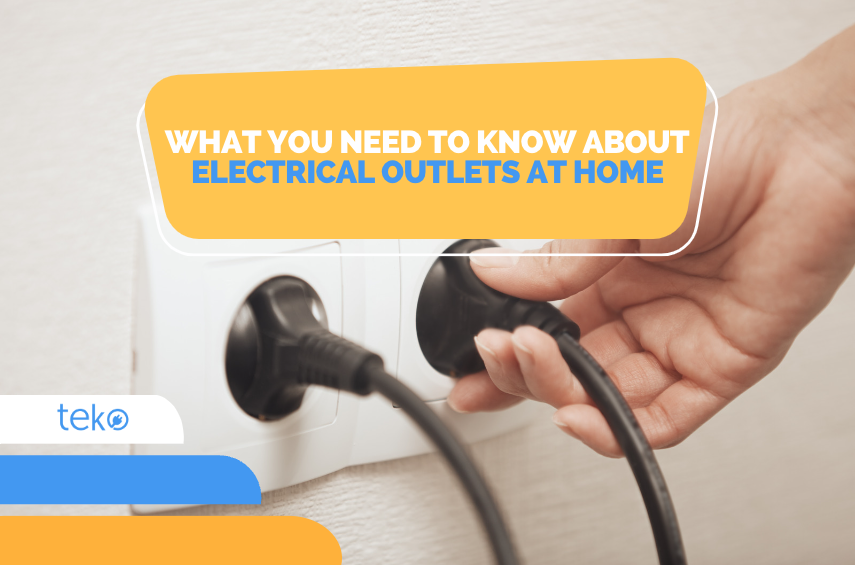
Electrical outlets are an essential part of homes. When you enter one, the first thing you may even look for is an outlet to plug your phone chargers into, right? As the largest aircon and appliance services provider in the Philippines, we, Teko.ph, came up with an easy guide on the proper use and safety measures for electrical outlets that you can check out.
Types of Electrical Outlets in the Philippines
In the Philippines, the most common type of electrical outlet for appliances is Type A. They are two-pronged, non-grounded sockets that can accommodate two parallel flat blades.
In some homes and commercial establishments, there are also Type B sockets. This type can accommodate two flat parallel blades, as well as a round grounding pin.
The standard voltage for residential sockets is 220V with a standard frequency of 60Hz.
Electrical Plugs in Home Appliances
If you take a quick look into your kitchen or bedroom, you’ll notice that most of their electrical plugs are two-pronged. They work in a Type A electrical outlet that’s common almost everywhere. You may also plug them in Type B and universal electrical outlets.
The electrical plug of appliances with two round prongs is called Europlug. Also known as Type C, it is widely used internationally and can be found in machines from Europe. You may plug it directly into two-way outlets or universal outlets.
When it comes to air conditioners, you may also notice that the machine has a different aircon plug. The most common types of aircon plugs are parallel, perpendicular, tandem, and large tandem. If the aircon outlet nearest the installed aircon does not match the plug, check its user manual. We also recommend that you hire a certified aircon technician to install your aircon. This is to ensure that the correct aircon outlet will also be installed and hooked to your power supply.
You may read more about aircon outlets in our blog here.
Safety Tips When Dealing with Electrical Outlets
We use electrical outlets regularly, but they may pose dangers and safety risks when not used properly. Here are some important safety tips to keep in mind when dealing with electrical outlets, power plugs, and wall sockets at home.
- Check the label on the appliance before plugging it into an electrical outlet.
- Always turn off the power before inserting or removing a plug from an outlet.
- Do not force power plugs into electrical outlets if they do not match.
- Do not use damaged electrical outlets and plugs, and frayed cords.
- Avoid touching electrical outlets with wet hands or metal objects.
- Have a licensed electrician inspect your home’s electrical system periodically to ensure safety.
